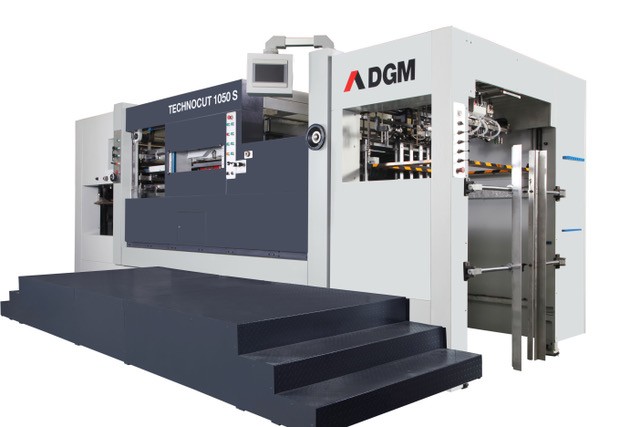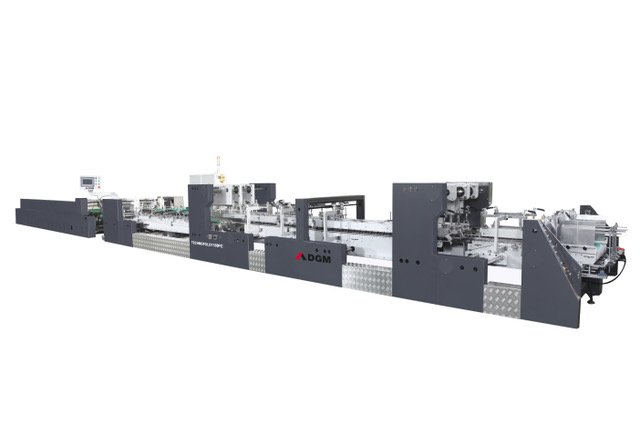
Meerut-based, Vardhman Books International is a publisher and commercial printer and one of the many commercial printers that diversified to monocarton production at the outset of the Covid-19 pandemic two years ago. The assets acquired by the company for its commercial printing and book and notebook production including its Komori press for conventional printing have now been deployed for carton printing. In addition a Heidelberg CD102 5-color plus coater press with UV curing was installed for carton printing a year ago.
The key additions that were needed for carton production were the converting machines, and an autoplaten DGM technocut 1050 die-cutter for converting 80 to 2000 gsm board was installed in 2021. The diecutter is capable of converting 3-ply corrugated sheets up to 5mm in thickness. The DGM technofold 1100PC folder gluer also installed in the past year’s makeover, can produce straight line, crash lock bottom, and double wall design cartons solid board from 170 gsm-800 gsm and three-ply corrugated cartons up to 20 mm folded thickness. It is also capable of producing CD/pocket folders. To complete the carton converting section and be able to supply the variety of cartons that the market now sees as a minimum, an automatic flute lamination machine and corrugation machine from Nataraj. Thus the Vardhman packaging plant has quickly geared to manufacture both mono-cartons and corrugated 3 and 5-ply cartons.

Vardhaman Books International, is not stopping with mere migration to packaging but is planning to grow this segment with further investments and structure. Company director Anuj Jain says, “We have made a new plant with a covered area of 2 lakh square feet entirely for our new packaging division.”
The new plant is adjacent to the current printing plant and can be expected to come into production with full capacity in the next couple of years.
Jain explains that the company has been a comprehensive supplier to schools for several decades, “For the past 45 years, we have been manufacturing a wide range of lightweight, attractively designed, and easy to carry notebooks and school books for students of all ages and classes ranging from nursery to twelfth. Our comprehensive range has included convent notebooks, long notebooks, hardbound registers, drawing copy, practical notebooks, punch paper, A4 registers, exam and answer booklets, clipboards, slip pads, account register, spiral binding register, soft bounding book, and so on.”
Nevertheles, the company is now entering the packaging sector with a great deal of commitment and has begun by producing monocartons and corrugated boxes for the food, lighting and electronics, textiles, and the pharmaceutical industries.
Vardhman’s great migration
While packaging has found a good wicket in the past two years, private textbook publishers who also print their books have found it rough going. The migration of commercial printers to carton production actually started several years and has been greatly accelerated by the pandemic and the lock downs that have kept schools shut for the most part of the last two years.
According to our sister website (www.ippstar.org), textbook demand has also been low with the closure of schools for the past 22 months. Apart from the uncertainty and weak consumption of books by digital classrooms, many publishers have been waiting for the curriculum changes before placing their book production orders for the coming season. The production of textbooks for private schools typically starts in September for deliveries beginning in December, which go on till March for the following school year. Rural education and literacy have taken a bigger knock since digital Zoom classrooms have functioned more sporadically in the countryside, often relying on children using only smartphones. The private schools textbook industry has come to a standstill in the past two years although there is some prospect of schools, and hence, textbook demand reawakening for the April 2022 school year.







